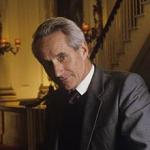Wynne Godley

Wynne Godley (2 September 1926 – 13 May 2010) was a British heterodox economist. He studied politics, philosophy and economics at New College, Oxford, and trained to become a professional musician, studying at the Paris Conservatoire for three years, and then becoming principal oboist at the BBC Welsh Orchestra. However he gave up this career as a musician, although he remained interested in music and was director of the Royal Opera from 1976 to 1987.
After his musical career ended he became an economist, and from 1956 to 1970 he worked at the UK Treasury where he worked in macroeconomic policy issues and short term forecasting, bridging economic and policy issues, including the 1967 devaluation of the pound.
He then moved to Cambridge University where he became a fellow of Kings College and director of the department of applied economics, although he continued to work as a government economic advisor at times, and was appointed as one of Norman Lamont's 'six wise men' external economic advisors after Black Wednesday. He predicted that the 1973-74 economic boom would end, and that unemployment would hit 3 million in the 1980s.
Within the department Godley formed the Cambridge Economic Policy Group, which from 1971 published an annual review. He continued to direct the department of Applied Economics until 1987, retiring in 1993. After serving, from 1992 to 1995, as a member of the Treasury's Panel of Independent Forecasters, Godley took up a post at the Levy Institute in New York State, joining Hyman Minsky, whose “financial instability hypothesis” won recognition during the 2008 crisis.
At the Levy Institute he turned his focus to the growing macroeconomic imbalances in the United States. Seeing clearly that the US imbalances, fuelled by burgeoning American private sector debt, implied counterpart imbalances in the rest of the world, Godley was among the first to say that the trajectory of the global economy was unsustainable.
His principal interest was macroeconomic policy. But he had lost faith in the sort of short-term forecasting in which he had specialized at the UK Treasury, so he devoted his efforts instead to developing better techniques of medium-term modeling. A new way of thinking about the determinants of private spending led him to argue that the size of the foreign trade deficit depended mainly on the size of the public sector deficit, while the exchange rate and the competitiveness of the economy affected mainly the overall level of output and employment.
The book, “Monetary Economics – An Integrated Approach to Credit, Money, Income, Production and Wealth” with Mark Lavoie, is Godley’s main legacy to economic modeling.